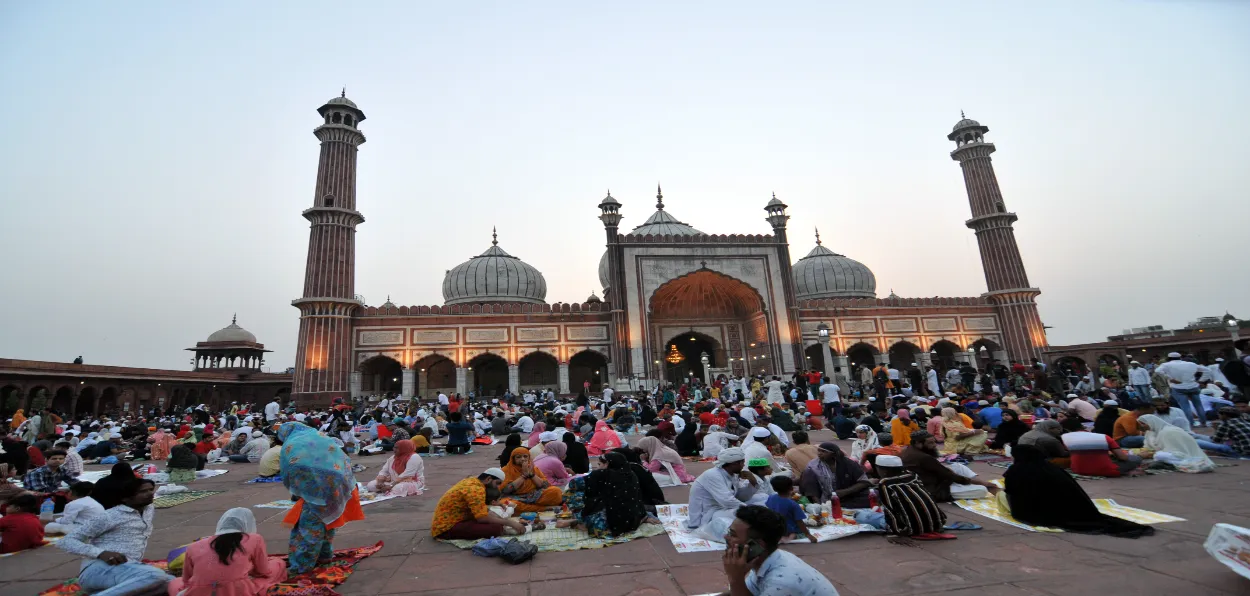
Shomaila Warsi
Identity politics has been prevalent in Indian politics for a long time. However, there is growing concern that it may not be benefiting Indian Muslims as much as it should. Muslims are a significant voting bloc. As per the 2011 census, Muslims are 14.2% of the Indian population, spread across 640 districts. There are around 100 districts where Muslims are more than one-fifth of the population. The 2019 Elections got 27 MPs in the Indian Parliament when the ideal number of Muslim MPs is 76.
An important question to ask is why despite being such an influential demographic, Muslims have been feeling politically marginalized and the community lags in terms of developmental indicators such as health, education, and livelihood. One of the less talked about causes for this state of affairs is that the community has become a victim of identity politics which was never an effective way of addressing the developmental problems of any community.
According to political scientist Francis Fukuyama, identity politics refers to the "politicization of one's particular identity or group membership to secure rights and recognition for that identity. Identity politics has similarly been defined by political scientist Iris Marion Young as "the social movements and organizing strategies through which oppressed groups attempt to gain rights and recognition to achieve full citizenship status and overcome discrimination".
However, in the Indian political context, identity politics as strategies and actions pursued by various groups have not succeeded in advancing the interests of these groups as it was supposed to be. Rather than securing equal representation, challenging discrimination and oppression, and creating a sense of community and solidarity among its members, identity politics has kept Muslims enslaved to political actors and parties whose only aim is to retain power without accountability.
In his seminal essay for EPW, Identity Politics, and the Indian Muslim, Asghar Ali Engineer has pointed out that the use of identity politics to mobilize voters along religious lines has marginalized Indian Muslims and hindered their progress. Engineer notes that while identity politics has helped to increase the political representation of Indian Muslims, it has also reinforced communal tensions and resulted in discrimination against the community.
Various surveys and reports suggest that Indian Muslims have not benefited from identity politics. For instance, a report by the Sachar Committee in 2006 highlighted the disparities faced by the community in various aspects of life. The report stated that Indian Muslims had lower levels of education, lower access to healthcare, and lower representation in government and public services. The report also pointed out that the community's poverty rate was higher than the national average.
One reason for this may be that politicians have used identity politics as a means to secure votes without addressing the community’s concerns. The focus on identity-based issues has often overshadowed more pressing concerns such as economic development and social welfare. As a result, Indian Muslims have been left behind in terms of development, even as politicians continue to use their identities to gain votes.
Another important aspect is that political parties claiming to represent their interests don’t realize that the electoral majority will get the crown in a first-past-the-post system. And the voting behavior is such that if the minority community votes on religious lines, even a partial consolidation by the majority community will lead to adverse electoral outcomes for the minority community. That is perhaps what happened in 2019 when 58 out of 80 seats were lost by Muslim candidates in areas where Muslims otherwise constitute at least 20 percent of the population.
Identity politics leads to electoral polarization which harms Muslims by reinforcing stereotypes and stigmatizing the community. The us-versus-them rhetoric creates a negative image of Muslims in the majority community's minds, making it difficult for them to integrate into society and participate fully in the economic and social life of the country.
ALSO READ: 7 ways in which Indian Muslims are making India great
It is therefore time for Indian Muslims to shift their focus to developmental issues. The community should prioritize assimilation in the national mainstream, economic development, livelihoods, education, and healthcare. These issues are critical to improving the community’s overall well-being and ensuring that they are not left behind in the development process. Muslims must also demand better representation in government and public services, as this can help ensure that their voices are heard and their concerns addressed.
(Dr. Shomaila Warsi teaches Political Science and International Relations at Maharaja Agrasen College, Delhi University)
